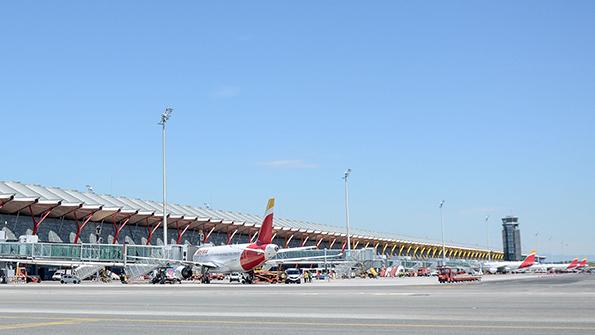This article is published in Air Transport World, part of Aviation Week Intelligence Network (AWIN), and is complimentary through May 22, 2024. For information on becoming an AWIN Member to access more content like this, click here.

Spain is the latest European country to propose a ban on certain domestic flights as part of efforts to reduce carbon emissions, following in the footsteps of France.
The plan has been under consideration since 2021 and would see the country scrap domestic routes with a high-speed rail alternative that takes less than 2.5 hours. The measure is intended to end short city-to-city flights, putting air links connecting the capital Madrid to major cities like Alicante, Barcelona and Valencia under threat.
However, the planned restriction put forward by Spain’s coalition government contains a clause that exempts connecting flights to international hubs, meaning that passengers flying from secondary points to Madrid-Barajas Airport and on to destinations farther afield will likely be unaffected.
According to Spanish media reports, the flights impacted are estimated to contribute only 0.06% to the country’s CO2 emissions. This comes after a study conducted by consulting firm PwC and released by Iberia found that domestic services in Spain account for less than 1% of total emissions—a percentage that is shrinking thanks to investments in sustainable aviation.
While Spain’s proposed law is in its early stages, it is expected that the number of routes involved will be negligible, mirroring France’s ban on some short-haul domestic flights. The French policy, introduced in May 2023, at present only restricts services between Paris Orly Airport and Bordeaux, Lyon and Nantes.
Although this ban has been largely ineffectual, it is clear that governments, particularly in Europe, are searching for quick solutions to the climate crisis—and aviation is in the firing line. The trend to curb demand for flights through headline-grabbing policies is also a worrying one—and should not be the answer. Instead, leaders should focus on tangible goals, rather than tokenistic bans.
Likewise, the introduction of “green taxes” must be channeled back into the sector to support the challenge of transitioning to cleaner energy. So far, this has not always been the case.
As the aviation industry works toward net zero, governments must end such political greenwashing. Instead, they need to get serious about investing in technological advancements, sustainable aviation fuel production, improved air traffic management, and adequate financing and incentives. The decarbonization of air travel needs to accelerate—but it cannot come at the expense of its democratization.




